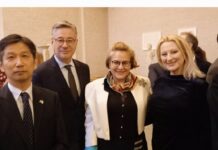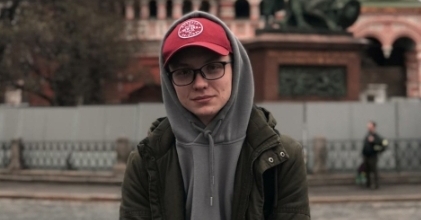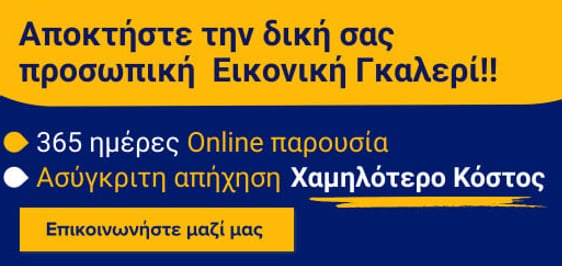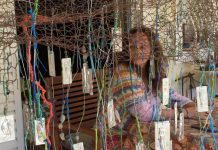Σας παρουσιάζουμε τον Владислав Упитанный / Vladislav Upitaniy Saint-Petersburg, Russia
Επιμέλεια συνέντευξης: Εύα Πετροπούλου Λιανού
Μετάφραση: Alexander Kabishev
Vladislav Naumov, a poet and journalist, hails from Kingisepp, a city that is a wild maze of panel houses with spots of schools and parks. Vladislav became interested in poetry and reciting poetry early, at school age. He read the lines of great poets on every corner. He took first places in competitions, which developed him as a speaker. He began to write his first author’s lines at a more mature age. The theme of those poems was what surrounded him. He did not “run away to other worlds”, he took the truth of life and wrapped it in poetic constructions. Later, Vlad moved from his hometown, which gave him material and pleasant memories, to St. Petersburg. He has been engaged in journalism for a long time, now he is published in several poetry collections and magazines.
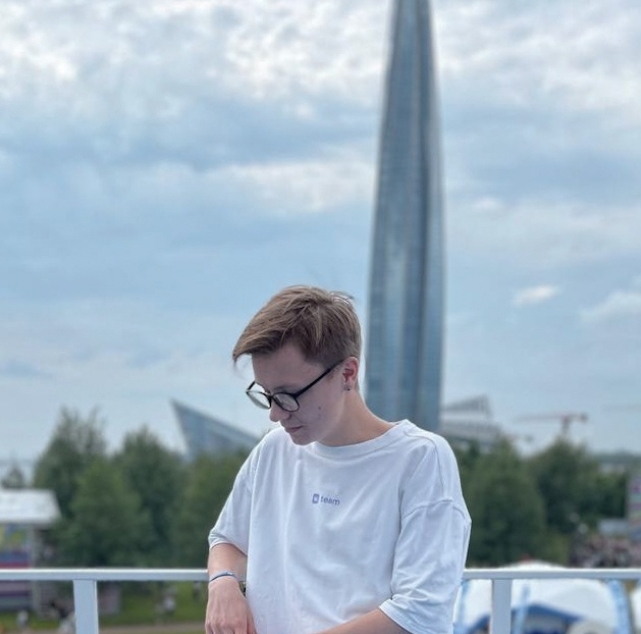
Do you remember your first poems that you wrote, what inspired you? Which poets, writers have had the strongest influence on you, why? Of course, numerous poetry contests in which I took part became a kind of impetus to creative self-expression. They most likely contributed to the formation of my current manner of recitation. Poems for such contests were often selected for me on the theme of war, too tearful, but winning in comparison with others. No one even asked me. But nevertheless, I studied the biographies of classics and already in literature lessons I read what I had to heart: Vladimir Mayakovsky, Alexey Apukhtin, Innokenty Annensky and other poets at the junction of the golden and silver centuries projected those thoughts that seemed to me not that relevant, but rather alive and human.
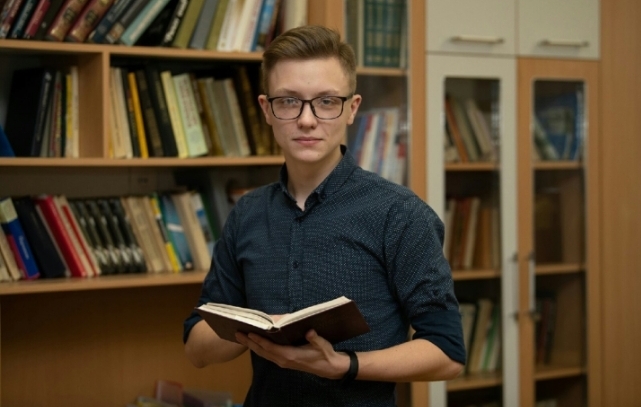
It was at that time that the realization came to me that poetry is nothing but the poet’s life experiences. And at that time, I was experiencing unrequited love, and youthful maximalism, and much more. Accordingly, the theme of my first poem, if such a name is appropriate, was love lyrics. These couple of lines turned out to be so funny and even somewhat mischievous that I decided to continue writing. Then I started trying something new: with rhyme, rhythm, syllable, gradually formed my own style. It was then that I began to delve into poetics as such.
Do you have a favorite book? Frankly, I don’t like prose. Perhaps I read the wrong authors (the Russian classics with their descriptions overflowing with empty images definitely discouraged all desire to touch it), and perhaps by nature I am not ready to devote much time to reading. But of my few favorites, I will single out “Norwegian Forest” by Haruki Murakami and “Strong Medicine” by Arthur Haley, I will also note Chekhov’s stories. My rescuers were anthologies and collections of poems, of course. Poetry of the Silver Age with detailed analyses. Collections of “the last creators of “pure poetry”. It was in the poems that I found everything that I lack in prose – beauty and conciseness, concentration and expressive imagery of thought. After all, it is in a few quatrains that the genius of poetry will be able to express everything for which a genius prose writer will need several pages.
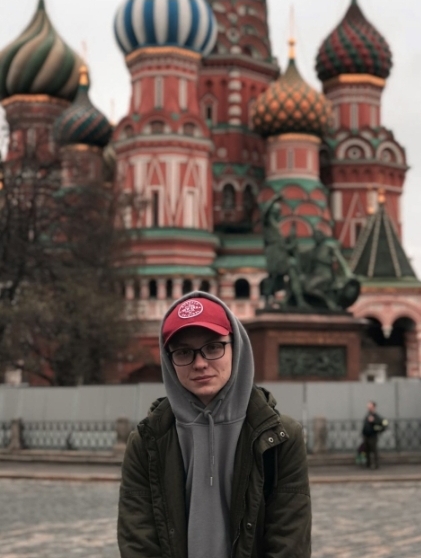
What kind of literature do you consider yourself and how do you see it in the future, for example, in the 22nd century? Metaromanticism. The theory says that typical romanticism is based on the conflict of the ideal and reality, the romantic hero is in irreconcilable contradiction with the surrounding world and cannot find himself. What is metaromantism? This is romanticism in the modern world. The prefix “meta” is the arrival of something new. Our society has changed, ideals have changed, the world, oddly enough, has been updated, so there can no longer be romanticism in the usual sense. If we are based on theory, there must be a conflict of the ideal with reality, and my ideal is embodied in reality and at the same time conflicts with it. In essence, I am what is around me, this is my ideal, which I perceive and against which I cannot do anything, whether I like it or not. I think that in the future, most of the existing genres will reach a new, relevant level for modern society. Perhaps new ones will appear, but, as we all know, inventing something new is always difficult, and sometimes even impossible.
What do modern poets of Russia have in common and how do they differ? Pain. Everyone has it different, but all poets experience it. It is this feeling that can cause the inspiration that opens up space for the creation of a new genius, it is pain that gives birth to modern classics.
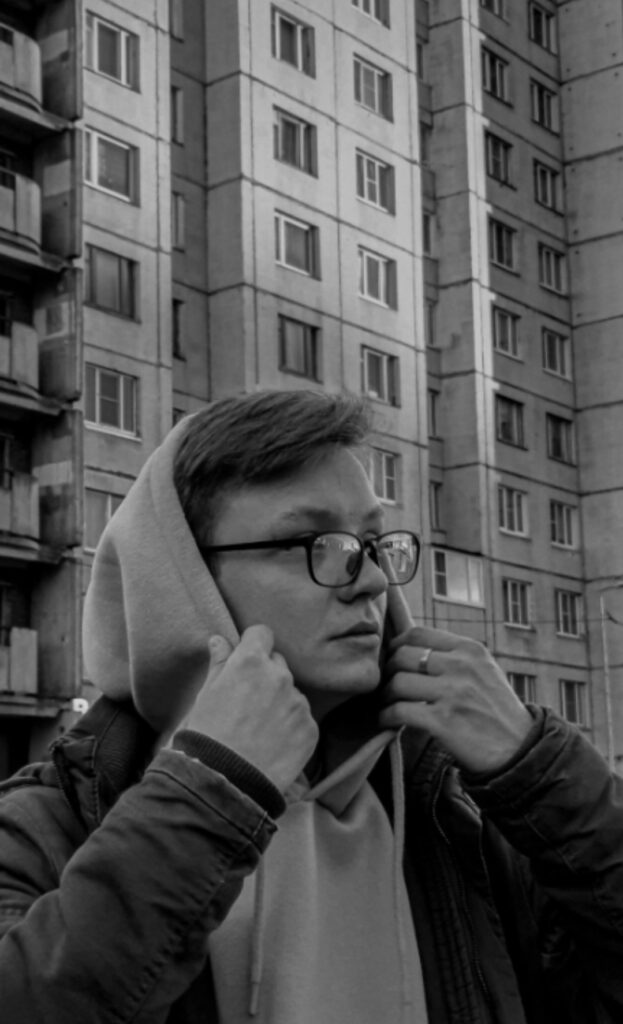
How can modern literature be made more interesting for young people? I will tell you on the example of Russia. It is necessary to remove the mandatory program, apply a recommendation character to it. I think it will also be appropriate to reduce literature lessons to a kind of literary club format. It is necessary to allow children to read what they want, and not what is required of them. It is this change, in my opinion, that will allow the youth to discover modern authors, increase the popularity of poetry, take it out of the current format “for intellectuals” and turn it into a genre that is interesting and accessible to everyone.
Which collections have you participated in and which one is the most dear to you? I want to get acquainted with modern classics on the pages of one book. Maxim Tesli, Lech Nikonov, Evgeny Alekhine, Fedor Booker and others. For me, this will be a kind of career peak, but of course I will not stop there.



